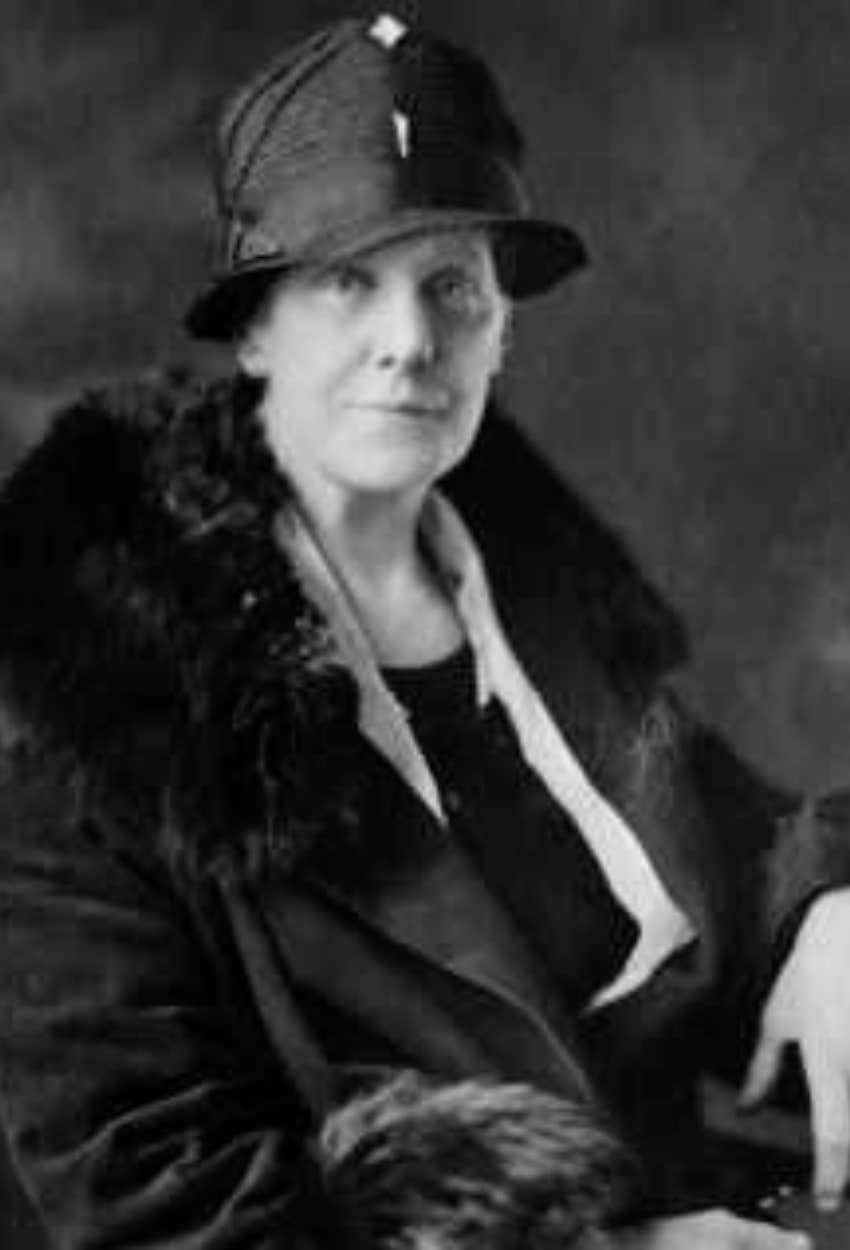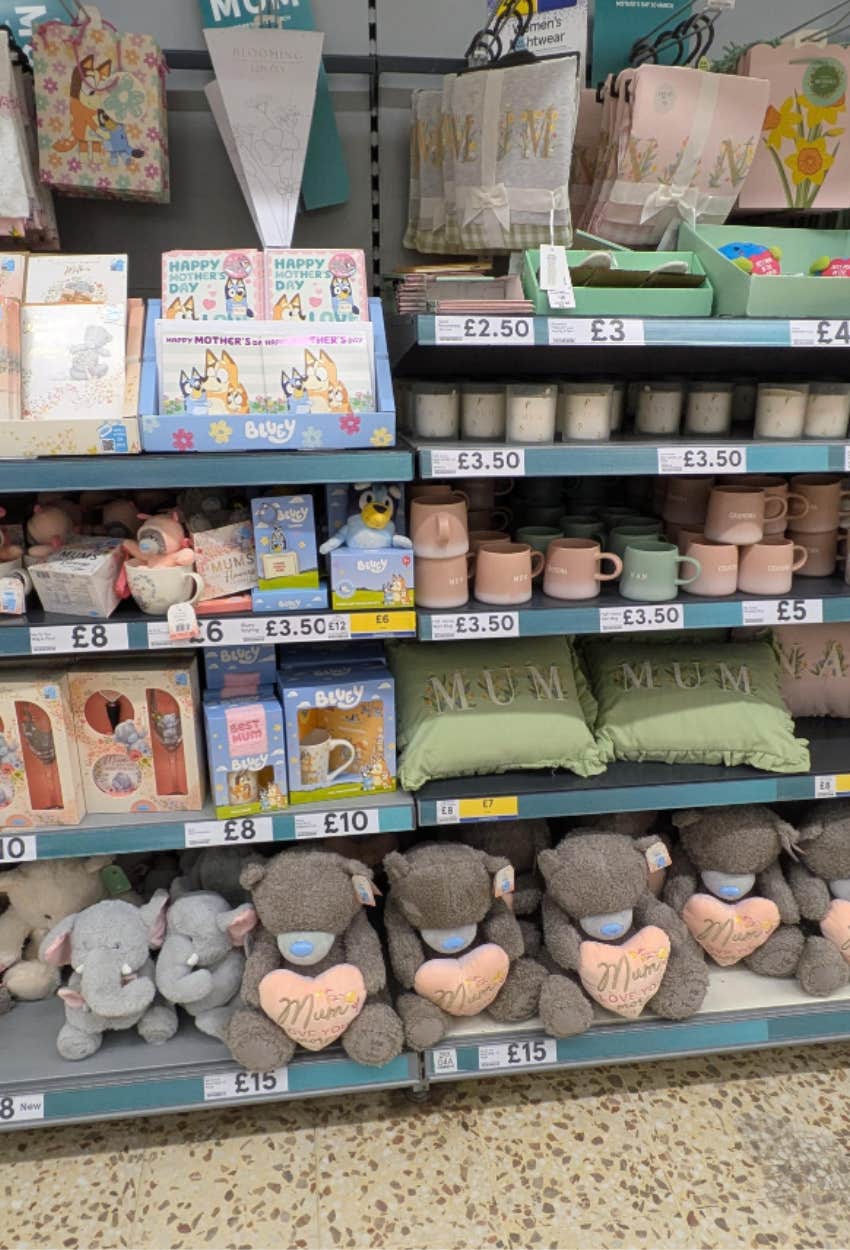Why The Woman Who Created Mother's Day Spent The Last Years Of Her Life Trying To Cancel The Holiday
Many people think her change of heart was warranted.
 Danie Franco | Unsplash
Danie Franco | Unsplash When it comes to divisive holidays, Mother's Day might take the cake. The holiday, while heartwarming in many aspects, can feel heartbreaking for many. Maybe your relationship with your mother is strained. Maybe you’ve lost her. Maybe you’re a mom who feels unseen, or someone who longs to be one but isn’t.
Ironically, the woman who created it, Anna Jarvis, might understand that dissonance better than anyone. After spending years fighting to create Mother’s Day, she spent the rest of her life trying to destroy it. It transformed into something she never wanted it to be — a retail-driven affair that centers on kitchy gifts instead of genuine love and appreciation.
The woman who created Mother's Day spent her last years trying to cancel the holiday.
Jarvis didn’t just regret creating Mother’s Day — she loathed what it became. What started as a deeply personal tribute turned into what she saw as a glitter-drenched monstrosity hijacked by florists, card companies, and candy empires.
 Olairian, Public domain | Wikimedia Commons
Olairian, Public domain | Wikimedia Commons
Historian Katharine Antolini explained to the BBC that Jarvis' inspiration came from her own beloved mother, who was quoted as saying, "I hope and pray that someone, sometime, will found a memorial mothers' day commemorating her for the matchless service she renders to humanity in every field of life. She is entitled to it." Upon her death, Jarvis began her Mother's Day campaign. According to Antolini, her motto was simple: “For the Best Mother who Ever Lived — Your Mother.” That’s why, to her, the apostrophe in “Mother’s Day” mattered so much — it was meant to be a personal dedication.
Obviously, her campaign was a success, and by the time Woodrow Wilson made it a national holiday in 1914, people had already been quietly celebrating for nearly a decade. Unfortunately, that national status changed the holiday's original intent.
Mother's Day turned into a revenue-centered celebration, and that's when Jarvis set her sights on ending what she started.
The holiday's rapid popularity morphed it into what many would jokingly describe as a Hallmark holiday. Florists, candy-makers, and greeting card companies were cornering the market. Carnation prices skyrocketed. Pre-written sentiments replaced handwritten notes, and Jarvis was horrified. In her words, it had been overtaken by "charlatans, bandits, pirates, racketeers... and termites."
Jarvis could have made a fortune off what she created. She had copyrighted the phrase “Second Sunday in May, Mother’s Day” and was even offered payments from the floral industry. She refused every dime. Instead, she spent her own money on lawsuits against anyone she felt had exploited the holiday. Her attempts did nothing but leave her nearly penniless and forced to spend the rest of her days in a Philadelphia sanatorium.
The commercialization of Mother's Day is a common complaint among many.
According to the National Retail Federation, although down slightly from last year, 84% of people plan to celebrate Mother's Day this year, and each is expected to spend an average of $254.04 on gifts. That is expected to drive a whopping $33.5 billion in revenue solely for the holiday. Anna Jarvis would not be pleased.
Although most of the population plans to celebrate, there are plenty of people quietly sharing their discontent for the overconsumption that does anything but express the heartfelt emotion that is at the root of the celebration. A U.K.-based Reddit user went so far as to share a photo of a local gift shop overloaded with Mother's Day gifts, commenting, "Mother's Day junk that will be clutter at best, landfill waste at worst."
Another user sarcastically commented, "Happy Mother's Day, Mom! Here's something you don't want, can't really use, think its cloying sentimentality is hideous, will never use, will never put on display in your home, and that I got for you on a whim just before showing up to tell you Happy Mothers Day before I go hang with my pickleball team."
 Reddit
Reddit
Mother's Day can be a difficult celebration for emotional reasons as well.
While there's absolutely nothing wrong with wanting to celebrate your mom on Mother's Day, and even spoil her if that's your choice, it's important to keep in mind that the holiday isn't all flowers and candy for everyone. Clinical psychologist Naomi Torres-Mackie, head of research at the Mental Health Coalition, told CNN, “There are different experiences that could lead up to why Mother’s Day would be difficult for somebody.” She went on to detail a multitude of scenarios, including the loss of a mom, and being born to a Mother who wasn't worth celebrating, to a woman struggling to become a mother herself.
At its core, Mother's Day can bring up feelings of pain and loss for many. “Grief is a reaction — it doesn’t have to be a reaction to death. There are many different types of loss,” Torres-Mackie said. “There’s no one right way to grieve, and it’s not linear, and time is almost irrelevant when it comes to grief and loss.”
This year, if you're celebrating, whether it's with an overpriced brunch and an "I Love Mom" mug, consider Anna Jarvis for one moment and what she would have considered a loving gesture. Add that into your celebration, too. And always remember, mothering does not mean being a mother or motherhood. Celebrate everyone who offers the care of a mother, even if they aren't one. That's a concept Anna Jarvis would definitely have approved of.
Erika Ryan is a writer working on her bachelor's degree in Journalism. She is based in Florida and covers relationships, psychology, self-help, and human interest topics.

